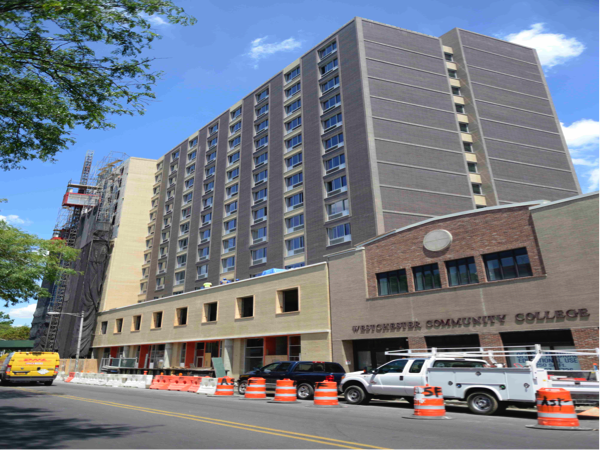First Amendment lawsuit to continue against Mayor Richard Thomas by developer
A federal judge has dismissed charges against the city of Mount Vernon by a developer who claims it was harassed, but allowed the case to continue against Mayor Richard Thomas.

Blue Rio LLC and its principal, Peter Fine, accused the city and mayor of political retribution for refusing to hire a particular consultant and for speaking about their dispute with the Westchester County Business Journal.
The federal lawsuit, filed in March, also names Michael Gianatasio, a private safety consultant who is president of Universal Engineering Services PC in New Rochelle.
The lawsuit states Gianatasio is a relative of the city”™s deputy police commissioner, Joseph Spiezio, a political supporter of the mayor. While the complaint does not identify Gianatasio as the consultant recommended to Blue Rio, it depicts him as being deputized to carry out a campaign of harassment.
The dispute centers on the La Porte Apartments at 203 Gramatan Ave., where Blue Rio was building 159 units of affordable workforce housing and retail space.
Thomas introduced Fine to a consultant at a private lunch on March 18, 2016, according to the lawsuit, and called the consultant a “friend and adviser.” If Fine needed to reach Thomas, “he should do so through the consultant.”
Later that summer, the consultant allegedly asked Fine to hire him. Fine declined.
On Oct. 18, 2016, Gianatasio visited the worksite, accompanied by a building inspector with an order to stop work. The order was not issued, but the incident was the first of many, the lawsuit claims, in which Gianatasio visited the site, sometimes accompanied by officials from public works, the building department, parking bureau, police department and fire department.
The city issued a stop-work order on Dec. 30, shutting down the project.

Then Frank DeLeonardis, the owner of the building next door on whose roof the developer had staged construction work, demanded $20,000 to repair damages he claimed construction workers had caused, and another $20,000 to allow Blue Rio to continue to use the roof.
The sto-work order was lifted on Jan. 4, but Gianatasio allegedly told Blue Rio that another order would be issued if the developer did not agree to DeLeonardis”™ terms.
Blue Rio sued DeLeonardis in Westchester Supreme Court to get access to his roof.
The Business Journal asked Thomas to comment on the lawsuit and on Blue Rio”™s allegations of harassment.
Thomas then allegedly called a friend and partner of Fine”™s and threatened to “investigate the shit out of you guys.”
The Feb. 23 news story quotes a Blue Rio attorney: “The city is putting its thumb on the scale until we pay.”
Thomas was quoted as saying the project had genuine safety issues and he was looking forward to an apology from Blue Rio.
On March 9, Thomas allegedly told Fine and a partner that “nothing is going to move” on the LaPorte project until the developer retracted comments in the Business Journal.
Later that day, inspectors from the federal Occupational Safety and Health Administration visited the site in response to an emergency complaint from the mayor”™s office about safety violations.
Gianatasio argued that the lawsuit should be dismissed against him because he was merely a consultant. U.S. District Judge Vincent Briccetti rejected that position in an Oct. 26 opinion. Gianatasio had repeatedly inspected the site and repeatedly threatened to issue stop-work orders, he ruled, suggesting that he had been deputized to enforce building codes and code violations.
Blue Rio claimed that its First Amendment right to freedom of association was violated when city officials retaliated against Fine for not hiring the consultant. Its First Amendment right to free speech was violated when Thomas wouldn”™t issue permits unless the developer apologized for statements made to the newspaper.
“Although it is a close call,” Briccetti ruled, “plaintiffs had met their burden of pleading retaliatory motive.”
But the judge ruled that Blue Rio had failed to establish a conspiracy claim against Thomas and Gianatasio or that the city itself was liable for Thomas”™ actions.
“The mere fact that a mayor performs actions in violation of constitutionally protected rights,” Briccetti ruled, “does not render those actions a policy or custom of the municipal government.”
Thomas also argued that he is entitled to qualified immunity.
Briccetti disagreed, citing case law. Qualified immunity is meant to protect “all but the plainly incompetent or those who knowingly violate the law.”
Without the benefit of a “fuller factual record,” he ruled, the court cannot conclude yet whether Thomas could reasonably believe that his actions did not violate clearly established law.